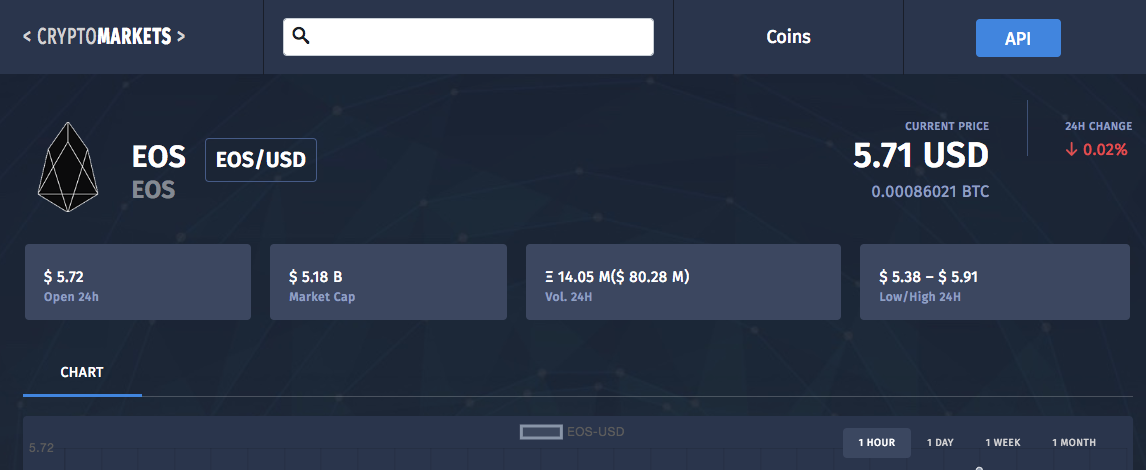EOS General Information
EOS is a blockchain based platform for decentralized applications development. It is a decentralized system that enables users to develop, host and execute commercial-scale decentralized applications (dApps) on its platform. There are two parts of the EOS ecosystem. EOS.IO that acts as an operating system of a computer – its function is to manage and control the blockchain network. The EOS token is the cryptocurrency that fuels all the functions in the EOS ecosystem.
EOS vs Ethereum
EOS has many unique features but one major difference compared to Ethereum is the fact that the setup does not have any mining concept. EOS focuses on critical pain-points of blockchain and attempts to solve common problems like: speed, scalability and flexibility.
EOS Trading
Initially there were 200 million EOS coins released. This represents 20% of the total EOS coins created. The next 70% were distributed over a period of 350 days and the total circulating supply now is close to 900 million. The cryptocurrency trades with the symbol EOS and is available for transacting on multiple exchanges with biggest 24h trading volume on OKEx, Bithum, Huobi and Upbit.
Supported markets:
BitcoinAverage supports the following EOS trading markets:
- EOS to Bitcoin (BTC) – https://bitcoinaverage.com/markets/coins/EOS/BTC
- EOS to US Dollar (USD) – https://bitcoinaverage.com/markets/coins/EOS/USD
- EOS to Ethereum (ETH) – https://bitcoinaverage.com/markets/coins/EOS/ETH
EOS API urls:
- EOS to Bitcoin (BTC) – https://apiv2.bitcoinaverage.com/indices/tokens/ticker/EOSBTC
- EOS to US Dollar (USD) – https://apiv2.bitcoinaverage.com/indices/tokens/ticker/EOSUSD
- EOS to Ethereum (ETH) – https://apiv2.bitcoinaverage.com/indices/tokens/ticker/EOSETH
